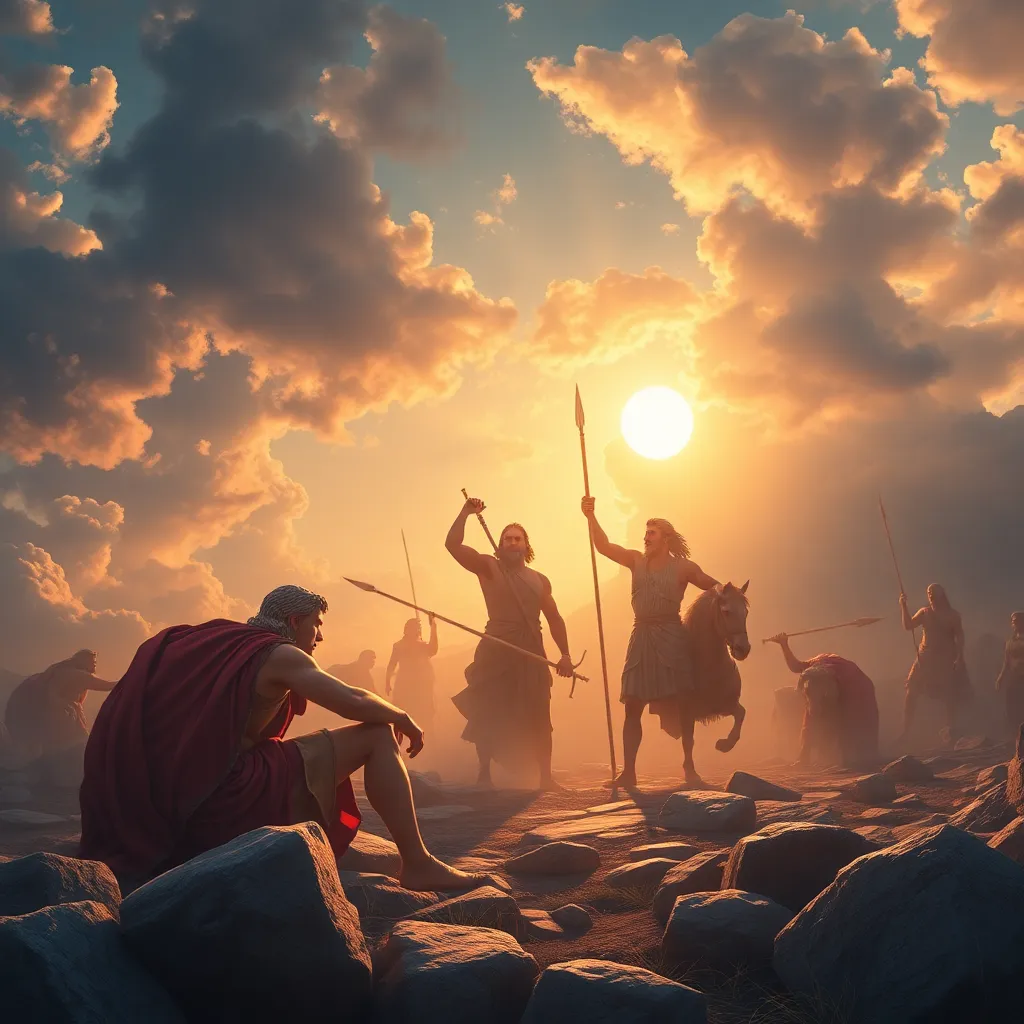Friendship and Loyalty in The Iliad: The Bonds of Brotherhood
I. Introduction
“The Iliad,” attributed to the ancient Greek poet Homer, is one of the most significant works of literature in Western history. Set against the backdrop of the Trojan War, it explores complex themes such as honor, glory, and the human experience, with friendship and loyalty emerging as central motifs throughout the narrative.
This article aims to delve into the bonds of brotherhood depicted in “The Iliad,” examining how friendship and loyalty shape the characters’ actions and the overall story. By exploring these themes, we can gain a deeper understanding of the values held by ancient Greek society and how they resonate with contemporary life.
II. The Concept of Brotherhood in Ancient Greek Culture
Brotherhood in ancient Greek culture extends beyond mere familial ties; it encompasses deep-rooted values of kinship, loyalty, and camaraderie. In a society where honor and reputation were paramount, the bonds between warriors were often likened to that of brothers.
- Definition of Brotherhood: Brotherhood involved mutual respect, shared experiences, and the expectation of loyalty in times of conflict.
- Role of Kinship: Kinship played a crucial role in forming alliances and maintaining social order, while camaraderie among warriors fostered a sense of unity on the battlefield.
- Cultural Norms: These cultural norms greatly influenced the relationships between characters in “The Iliad,” dictating their actions and decisions.
III. Achilles and Patroclus: The Archetype of Friendship
One of the most poignant representations of friendship in “The Iliad” is the bond between Achilles and Patroclus. Their relationship transcends mere friendship, embodying loyalty and unwavering support.
Key moments in their friendship include:
- Their early friendship during childhood, establishing a foundation of trust.
- Patroclus donning Achilles’ armor to rally the Greek forces, a testament to their bond.
- Achilles’ grief and rage following Patroclus’ death, which serves as a catalyst for his return to battle.
Patroclus’ death marks a turning point in the narrative, igniting Achilles’ fury and highlighting the theme of loyalty. His desire for revenge against Hector is driven not only by personal loss but also by the profound bond they shared, demonstrating how friendship can shape one’s destiny.
IV. The Role of Loyalty in Warrior Relationships
Loyalty is a cornerstone of the relationships among warriors in “The Iliad.” Characters often face dilemmas that test their loyalty to comrades and leaders alike.
Examples of loyalty abound throughout the epic:
- Hector’s dedication to defending Troy, embodying loyalty to his city and family.
- Achilles’ initial withdrawal from battle due to a perceived slight by Agamemnon, showcasing the complexities of loyalty.
- The unwavering support of warriors like Ajax, who stands by his comrades in the face of overwhelming odds.
The consequences of betrayal are severe, as seen with Agamemnon’s breach of loyalty towards Achilles, which leads to disastrous consequences for the Greek forces. Oaths and promises, often invoked in the context of battle, serve as the glue binding these relationships, emphasizing the importance of loyalty in maintaining alliances.
V. The Dynamics of Friendship and Rivalry
The relationship between Achilles and Agamemnon reveals how rivalry can complicate friendships and loyalty. Their conflict serves as a backdrop for the exploration of personal honor versus collective loyalty.
- Achilles and Agamemnon: Their rivalry stems from pride and a clash of egos, which ultimately undermines the Greek cause.
- Complications of Rivalry: The tension between personal honor and the greater good causes fractures in their relationships with other warriors.
- Balancing Acts: Characters must navigate the delicate balance between maintaining personal honor while remaining loyal to their comrades.
VI. The Influence of Fate and the Gods on Brotherhood
In “The Iliad,” the influence of fate and the gods plays a critical role in shaping the friendships and loyalties of the characters. Divine intervention often complicates human relationships.
- Divine Intervention: The gods frequently intervene in human affairs, influencing outcomes and relationships, sometimes favoring one side over another.
- Fate’s Role: Characters are often bound by fate, with their destinies predetermined, which can lead to feelings of helplessness in the face of personal loss.
- Tension Between Agency and Divine Will: The struggle between human agency and divine will adds layers of complexity to the characters’ loyalties and friendships.
VII. The Legacy of Friendship and Loyalty in “The Iliad”
The enduring themes of friendship and loyalty in “The Iliad” have left an indelible mark on later literature and culture. These themes resonate with contemporary values, reminding us of the importance of strong bonds in our lives.
- Impact on Literature: Many works throughout history have drawn inspiration from the friendships depicted in “The Iliad,” exploring similar themes.
- Contemporary Resonance: The bonds of brotherhood depicted in the epic continue to resonate with modern audiences, reflecting the timeless nature of loyalty and friendship.
- Moral Lessons: The epic teaches valuable lessons about the significance of loyalty, the consequences of betrayal, and the depth of true friendship.
VIII. Conclusion
In conclusion, friendship and loyalty are pivotal themes in “The Iliad,” deeply influencing the narrative and character dynamics. The bonds of brotherhood depicted serve as powerful reminders of the values that shaped ancient Greek society and continue to hold relevance today.
As we reflect on the significance of these themes, we are invited to explore further the complexities of friendship and loyalty in literature, uncovering the ways in which they shape human experiences across cultures and time.




